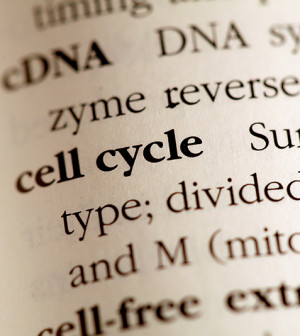- Are You Making This Expensive Thermostat Error This Winter?
- Recognizing the Signs of Hypothyroidism
- 10 Strategies to Overcome Insomnia
- Could Artificial Sweeteners Be Aging the Brain Faster?
- Techniques for Soothing Your Nervous System
- Does the Water in Your House Smell Funny? Here’s Why
- Can a Daily Dose of Apple Cider Vinegar Actually Aid Weight Loss?
- 6 Health Beverages That Can Actually Spike Your Blood Sugar
- Treatment Options for Social Anxiety Disorder
- Understanding the Connection Between Anxiety and Depression
Genes, Environment May Play Equal Parts in Autism Risk: Study

A new study suggests that nature and nurture may be equal partners in the origins of autism.
“This study emphasizes not only what a strong role genetics play as a cause for autism in many affected individuals, but it also reinforces the concept that the environment also plays a significant role — unfortunately in ways that are not well understood,” said one expert not connected to the study, Dr. Andrew Adesman of Cohen Children’s Medical Center of New York in New Hyde Park, NY.
In the study, researchers led by Sven Sandin of the Karolinska Institute in Stockholm looked at data on more than 2 million births that took place in Sweden between 1982 and 2006.
More than 14,500 of the children born in that period were diagnosed as being somewhere on the “autism spectrum,” and nearly 40 percent of that number were diagnosed with full-scale autism.
Multiple cases of autism often occurred within families. For example, children with brothers or sisters who had previously been diagnosed as being on the autism spectrum had a 10-fold higher risk for being diagnosed with the disorder themselves, the Swedish study found. Children who had cousins with the disorder were twice as likely to be diagnosed with the condition, the research showed.
Sandin’s team used that data, along with a consideration of possible environmental influences that could raise autism risk, and concluded that both genetics and environment have an equal effect on autism risk.
The findings weren’t a surprise to Adesman, who is chief of developmental and behavioral pediatrics at the medical center.
“Clinicians, researchers and the public need to get away from thinking of medical conditions as being caused by either genetics or the environment, since it often times is both,” he said.
Adesman said that recent advances in gene testing now “allow us to identify a specific genetic abnormality in as many as 20 percent of children with autism.” And “even when a specific genetic abnormality is not identified on diagnostic testing, there are likely genetic factors at play in many cases,” he added.
Dr. Ron Marino is associate chairman of pediatrics at Winthrop-University Hospital in Mineola, N.Y. He said that, “”all human experience is a result of the interaction between genetics and environment … We must better understand the role of environmental toxins as well as toxic stress and adverse childhood events in influencing genetics.”
Armed with those insights, specialists might then better “counsel families with regard to this difficult condition,” Marino said.
The findings were published in the Journal of the American Medical Association, timed to coincide with a planned presentation Saturday at the annual meeting of the Pediatrics Academic Societies in Vancouver.
More information
There’s more on autism at the U.S. National Institutes of Health.
Source: HealthDay
Copyright © 2026 HealthDay. All rights reserved.










